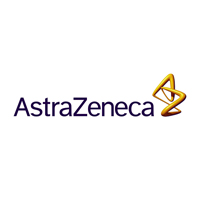AstraZeneca Plc (LON:AZN) today announced positive results from the Phase III ASCEND trial of Calquence (acalabrutinib) in previously-treated patients with chronic lymphocytic leukaemia (CLL). Results showed a statistically-significant and clinically-meaningful improvement in progression-free survival (PFS) with Calquence monotherapy compared to a combination regimen of rituximab plus physician’s choice of idelalisib or bendamustine. Importantly, the safety and tolerability of Calquence was consistent with the known profile.
José Baselga, Executive Vice President, R&D Oncology said: “Calquence is the first BTK inhibitor to show benefit in a Phase III trial as a monotherapy compared to current standard-of-care combinations used in relapsed or refractory chronic lymphocytic leukaemia. We look forward to presenting detailed results at a forthcoming medical meeting.”
Within AstraZeneca’s robust development programme for Calquence, ASCEND is the first of two Phase III CLL trials expected to read out in 2019. The second is ELEVATE-TN (ACE-CL-007) in treatment-naïve, front-line CLL. Calquence is currently approved for the treatment of adults with relapsed or refractory mantle cell lymphoma (MCL) in the US, Brazil, the UAE, and Qatar, and is being developed for the treatment of CLL and other blood cancers.
About ASCEND
ASCEND (ACE-CL-309) is a global, randomised, multicentre, open-label Phase III trial evaluating the efficacy of Calquence in previously-treated patients with CLL. In the trial, 310 patients were randomised (1:1) into two groups. Patients in the first group received Calquence monotherapy (100mg twice daily until disease progression). Patients in the second group received rituximab plus physician’s choice of idelalisib or bendamustine.1
The primary endpoint is PFS assessed by an independent review committee (IRC), and key secondary endpoints include physician-assessed PFS, IRC- and physician-assessed overall response rate and duration of response, as well as overall survival, patient reported outcomes and time to next treatment (TTNT).1
About Calquence
Calquence (acalabrutinib) was granted accelerated approval by the US Food and Drug Administration (FDA) in October 2017 for the treatment of adult patients with MCL who have received at least one prior therapy. Continued approval for this indication may be contingent upon verification and description of clinical benefit in confirmatory trials.
Calquence is an inhibitor of Bruton tyrosine kinase (BTK). Calquence binds covalently to BTK, thereby inhibiting its activity2. In B-cells, BTK signalling results in activation of pathways necessary for B-cell proliferation, trafficking, chemotaxis, and adhesion.
As part of an extensive clinical development programme, AstraZeneca and Acerta Pharma are currently evaluating Calquence in 26 clinical trials that are company-sponsored. Calquence is being developed for the treatment of multiple B-cell blood cancers including CLL, MCL, diffuse large B-cell lymphoma, Waldenstrom macroglobulinaemia, follicular lymphoma, and multiple myeloma and other haematologic malignancies. Several Phase III clinical trials in CLL are ongoing, including ASCEND, ELEVATE-TN, ELEVATE-RR (ACE-CL-006) evaluating Calquence vs. ibrutinib in previously-treated CLL and ACE-CL-311 evaluating Calquence in combination with venetoclax and obinutuzumab in previously-untreated fit patients with CLL.
About chronic lymphocytic leukaemia (CLL)
CLL is the most common type of leukaemia in adults3. In the US, it accounts for approximately one in four new cases of leukaemia, with the average age at the time of diagnosis being approximately 70 years of age4. In CLL, too many blood stem cells in the bone marrow become abnormal lymphocytes and these abnormal cells have difficulty fighting infections3. As the number of abnormal cells grows there is less room for healthy white blood cells, red blood cells and platelets3. This could result in anaemia, infection and bleeding3. B-cell receptor signalling through BTK is one of the essential growth pathways for CLL.
About AstraZeneca in haematology
Leveraging its strength in oncology, AstraZeneca has established haematology as one of four key oncology disease areas of focus. The Company’s haematology franchise includes two US FDA-approved medicines and a robust global development programme for a broad portfolio of potential blood cancer treatments. Acerta Pharma serves as AstraZeneca’s haematology research and development arm. AstraZeneca partners with like-minded science-led companies to advance the discovery and development of therapies to address unmet need.
In October 2018, AstraZeneca and Innate Pharma announced a global strategic collaboration that included Innate Pharma licensing the US commercial rights of Lumoxiti (moxetumomab pasudotox-tdfk), and with support from AstraZeneca, will continue EU development and commercialisation, pending regulatory submission and approval.
About AstraZeneca in oncology
AstraZeneca has a deep-rooted heritage in Oncology and offers a quickly-growing portfolio of new medicines that has the potential to transform patients’ lives and the Company’s future. With at least six new medicines to be launched between 2014 and 2020, and a broad pipeline of small molecules and biologics in development, we are committed to advance Oncology as a key growth driver for AstraZeneca focused on lung, ovarian, breast and blood cancers. In addition to our core capabilities, we actively pursue innovative partnerships and investments that accelerate the delivery of our strategy as illustrated by our investment in Acerta Pharma in haematology.
By harnessing the power of four scientific platforms – Immuno-Oncology, Tumour Drivers and Resistance, DNA Damage Response and Antibody Drug Conjugates – and by championing the development of personalised combinations, AstraZeneca has the vision to redefine cancer treatment and one day eliminate cancer as a cause of death.
About AstraZeneca
AstraZeneca is a global, science-led biopharmaceutical company that focuses on the discovery, development and commercialisation of prescription medicines, primarily for the treatment of diseases in three therapy areas – Oncology, Cardiovascular, Renal & Metabolism and Respiratory. AstraZeneca operates in over 100 countries and its innovative medicines are used by millions of patients worldwide.







































